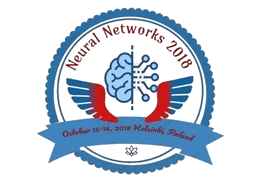
Jivitesh Sharma
University of Agder, Norway
Biography
Fire related disasters are the most common type of emergency situation which requires thorough analysis of the situation required for a quick and precise response. The damage due to fire is quite substantial. The number of deaths due to fire related emergencies is around 18,000 per year. Apart from this, the economic loss is quite considerable. Forest fires in Northern California last year resulted in $65 billion in property damages. Emergency response is the most critical part of disaster management which deals with the organization, allocation and deployment of resources in the most efficient manner with the sole purpose of protecting public health and minimizing damage caused by a natural or human-made disaster and brings the situation under control. We intend to develop and apply novel AI algorithms, strategies and methodologies to fire emergency situations and outperform previous state-of-the-art models to achieve higher performance, precision and efficiency. The main aim is to develop a system that can detect fire as soon as possible, analyze it and the surroundings thoroughly and finally plan the evacuation of all people which should result in as little damage as possible; all this would be done in less than 5 seconds. Such an accurate, versatile and fast system requires many different sub-fields of deep learning to come together. It will employ image recognition and classification with CNNs, Object detection and Image segmentation with R-CNNs and Deep Reinforcement Learning with DQNs and Policy Gradients. The first step of building fire management system was successfully accomplished. It would be quite malleable and can be easily modified for other applications. Even though it will be large and complex, but it’s tractability won’t be compromised because it’s divided into several modules. It will be the first end-to-end trainable Deep Neural Network emergency management system.
Abstract
Abstract : Deep Neural Network system for Fire Emergency: Detection, Analysis and Evacuation

